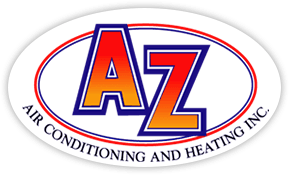
We spend a good majority of our time indoors. In reality, the Environmental Protection Agency (EPA) has approximated being indoors makes up 90% of our schedule. Although, the EPA also has found your indoor air can be three to five times worse than outside your home.
That’s since our houses are tightly sealed to boost energy efficiency. While this is great for your heating and cooling expenses, it’s not so fantastic if you’re among the 40% of the population with respiratory allergies.
When outdoors ventilation is limited, pollutants including dust and volatile organic compounds (VOCs) can get trapped. Consequently, these pollutants might worsen your allergies.
You can enhance your indoor air quality with crisp air and routine dusting and vacuuming. But if you’re still struggling with symptoms while you’re at your house, an air purifier may be able to help.
While it can’t remove pollutants that have landed on your furnishings or carpeting, it could help purify the air circulating throughout your house.
And air purification has also been scientifically proven to help reduce some allergic symptoms, according to the American College of Allergy, Asthma and Immunology. It can also be appropriate if you or someone in your household has a lung condition, such as emphysema or COPD.
There are two options, a portable air purifier or a whole-home air purifier. We’ll discuss the differences so you can learn what’s right for your residence.
Whole-House Air Purifier vs. Portable Air Purifiers
A portable air purifier is for a lone room. A whole-house air purifier works alongside your heating and cooling system to clean your complete home. Some kinds can purify independent when your home comfort equipment isn’t running.
What’s the Best Air Purifier for Allergies?
Look for a model with a High Efficiency Particulate Air (HEPA) filter. HEPA filters are installed in hospitals and offer the most comprehensive filtration you can find, as they eliminate 99.97% of particles in the air.
HEPA filters are even more useful when used with an ultraviolet (UV) germicidal light. This powerful blend can eliminate dust, dander, pollen and mold, all of which are standard allergens. For the best in air purification, think over a unit that also has a carbon-based filter to reduce household vapors.
Avoid getting an air purifier that makes ozone, which is the top element in smog. The EPA warns ozone could aggravate respiratory troubles, even when discharged at low amounts.
The Allergy and Asthma Foundation of America has made a listing of questions to consider when purchasing an air purifier.
- What can this purifier remove from the air? What doesn’t it remove?
- What’s its clean air delivery rate? (A higher number means air will be freshened more rapidly.)
- How often does the filter or UV bulb need to be changed]? Can I finish that without help?
- How much do replacement filters or bulbs cost?
How to Decrease Seasonal Allergy Symptoms
Want to receive the {top|most excellent|best] performance from your new air purification unit? The Mayo Clinic suggests doing other steps to decrease your exposure to problems that can cause seasonal allergies.
- Stay in your home and keep windows and doors closed when pollen counts are heightened.
- Have someone else mow the lawn or pull weeds, since this work can irritate symptoms. If you must do these jobs alone, you might want to consider trying a pollen mask. You should also shower immediately and change your clothes once you’re done.
- Avoid stringing up laundry outside your home.
- Run air conditioning while at your house or while driving. Consider using a high efficiency air filter in your home’s HVAC system.
- Balance your residence’s humidity saturation with a whole-house dehumidifier.
- Hardwood, tile or linoleum are the ideal flooring materials for reducing indoor allergens. If your home has carpet, add a HEPA filter on your vacuum cleaner.
Let Our Professionals Handle Your Indoor Air Quality Requirements
Prepared to progress with installing a whole-house air purifier? Give our specialists a call at 800-296-5088 or contact us online to get an appointment. We’ll help you find the ideal system for your residence and budget.
